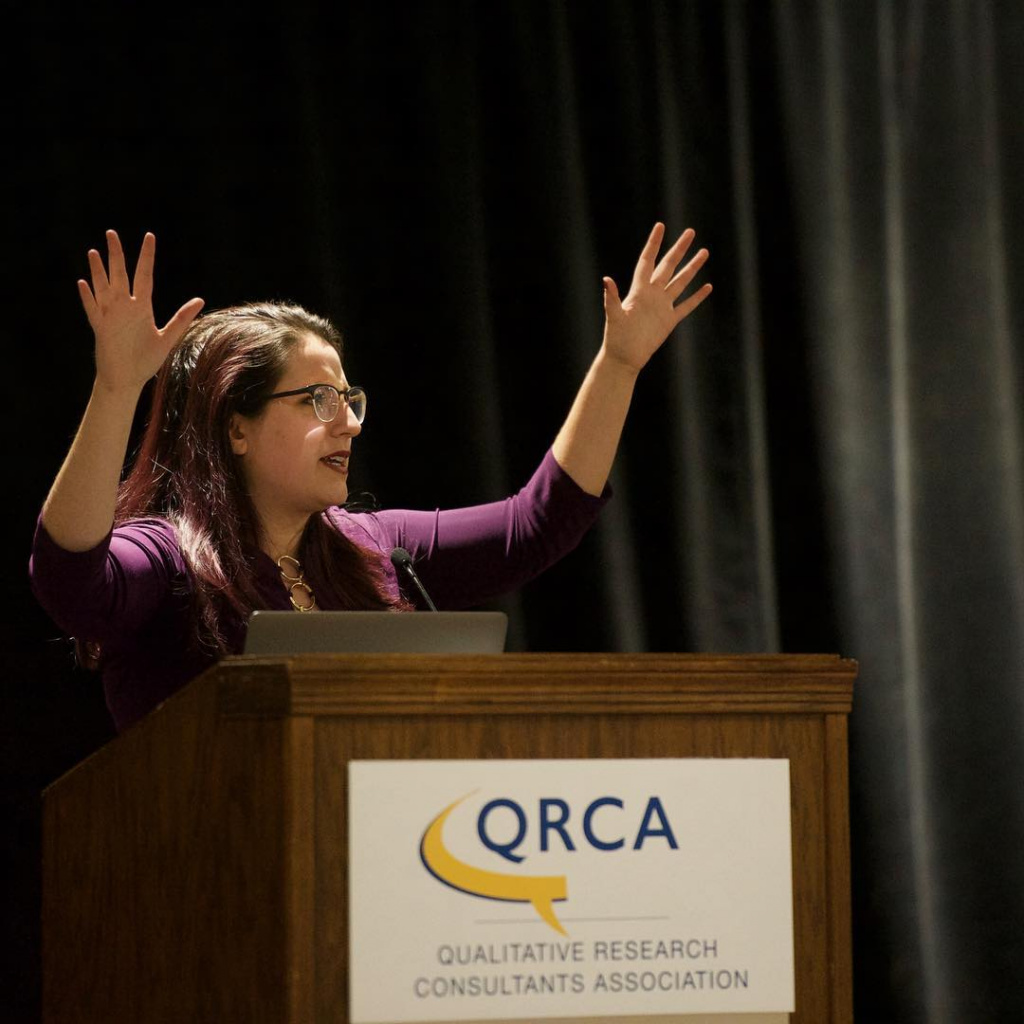The 30 Under 30: Kelsey Segaloff

Great to catch up with 2021 Significant Insights Global 30 Under 30 honouree, Kelsey Segaloff, who works at HubSpot and is a pun-loving, book-devouring, improv-performing, Disney-obsessing, and TV binge-watching Senior UX Researcher.
Take us through your industry journey so far? How did you arrive at this point?
I love connecting with other people and I am ever-curious about “the why” behind everything. I’m the kind of person who spends long Lyft rides asking the drivers about their most memorable driving experiences. And to the chagrin of some, yes, I am also that kind of person who will chat you up on an airplane. Curiosity and connection are foundational to my work as a researcher.
I discovered I could apply my love of curiosity and connection to my academic experiences at Brandeis University. Through both my Sociology and Education Studies degrees, I had the fortune to conduct research on a diverse array of topics. From studying the reasons we interact with deceased user profiles on social media, to the pedagogy of Jewish teachers, to the future of crime, I had the opportunity to engage with a variety of research during my undergraduate experience.

My first job out of college was an internship at Walt Disney World, conducting secondary research on the future of work. Working for Disney fulfilled a childhood dream of mine and all the while I got to keep exploring my curiosity through research.
When I finished my internship, I got a job at a market research agency. I was fortunate to do qualitative work across a variety of industries, such as healthcare, entertainment, financial services, and technology. I loved the variety of research I got to work on, and I learned from some of the best moderators in the industry.
After working at the agency, I joined the UX Research team at HubSpot. I have spent the last three years studying marketers and how we can improve experiences for them. While I am on a user experience research team, we conduct a blend of research types (e.g., UX research, market research), and span both qualitative and quantitative methodologies. Each day at HubSpot, I get to do what I love; embrace connection and follow my curiosity.

So, what’s so inspiring about our industry?
I am inspired by the work being done to shift from business-centric to human-centric research approaches, and the thought leaders creating those changes.
Years ago, I was note-taking for a study wherein a participant described going through a painful experience and what could improve it. The stakeholders, rather than being open to the participant’s improvement ideas, laughed. I remember my skin-crawling as I felt like I was doing work “for the bad guy.” We were never there to help the participant; we were only focused on how the company could profit.
However, over time there’s been a notable shift from the business-centric mindset to a human-focused one. There are many incredible research thought leaders who have led this change.
In particular, Sekai Farai is someone I deeply admire who has talked a lot about empathy and what it really means. She was a keynote speaker for an event I ran earlier this year (QRCA’s “Flex Your UX”). During her talk, she discussed that it can’t just be on the researcher to be empathetic, but the entire organization must, “take action that prioritizes the empathetic outcome.”
Rather than the experience early in my career where the business wasn’t bought into taking empathetic action, in my role at HubSpot I feel the organization is prioritizing the empathetic outcome Sekai discussed. For me, knowing the humanity of the people I research is prioritized above the business is remarkable.
Reflecting on the industry as a whole, there is still plenty of work to be done to increase the human-focused approach, particularly with underrepresented communities. However, I continue to be inspired by the changes that have occurred so far and the people pioneering those changes.

What message do you have for anyone considering a career in our industry?
Being a researcher is taking everything that makes us good human beings and putting it to practice:
Being a researcher is listening.
Being a researcher is pattern finding.
Being a researcher is problem-solving.
To my best knowledge, the folks reading this have always been human beings (unless you’ve fallen victim to some fairy tale curse). If you’re considering a career in research, know that you will continuously build the skills that already make you human.
Researching has improved my human-ing; I’ve grown both personally and professionally through this industry.
How do very junior researchers stand out?
I feel fortunate to have worked at organizations that looked at me – who had only started developing my research skills through my undergraduate experience – and saw me as someone with potential. The organizations I have worked for allowed me to bring my creativity to the table, while also providing access to professional development. I wish I could name what helped me stand out, but I think more of it was applying to workplaces that valued new perspectives.
So with that said, I’d love to shift the onus from junior researchers needing to stand out to instead asking hiring managers to be more open to hiring junior researchers.
It feels like the industry is becoming top-heavy with teams of primarily senior researchers, and less emphasis on training and hiring newer researchers. But we need the perspective of new researchers in order to have a thriving research community in the future.
Newer researchers can bring creativity to the field by introducing inventive methodologies and deliverables that bring novel insights. I often think back to when Tory Gentes used Tinder to recruit participants for interviews, as an example of someone who was a younger researcher trying a new way of collecting insights. Tory’s work was completely inspiring!
If we don’t make an effort to hire, train, and embrace the creativity of junior researchers, we’re missing out on revolutionizing our industry. It’s not just on the junior researcher to stand out, but for organizations to make room for those researchers.